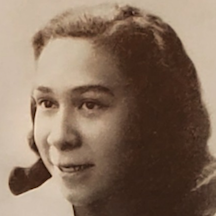 Brown University in Providence, Rhode Island, is renaming its Graduate School diversity fellow in honor of the first Black woman to earn a Ph.D. from the university. The Mae Belle Williamson Simmons Diversity Fellowships will honor the legacy of a trailblazing Providence native who made a lasting impact on the field of child psychology. The scholarship program was founded in 2017. Each fellowship provides three years of $3,000 in enhanced funding and a one-time research grant of $1,000.
Brown University in Providence, Rhode Island, is renaming its Graduate School diversity fellow in honor of the first Black woman to earn a Ph.D. from the university. The Mae Belle Williamson Simmons Diversity Fellowships will honor the legacy of a trailblazing Providence native who made a lasting impact on the field of child psychology. The scholarship program was founded in 2017. Each fellowship provides three years of $3,000 in enhanced funding and a one-time research grant of $1,000.
“Brown’s first Black male Ph.D. graduate, who earned his Ph.D. in biology in 1932, is recognized in the names of the Samuel M. Nabrit Black Graduate Student Association and the Dr. Samuel N. Nabrit Conference for Early Career Scholars,” Graduate School Interim Dean Thomas A. Lewis said. “We think it’s incredibly important to honor the achievements of the first Black female graduate as well.”
But determining who was the first Black woman to earn a Ph.D. at the university was a challenging task that involved extensive research among university archives. More than 80 archival commencement programs and cross-referenced doctoral degree recipients’ names with census records to crack the case and discover Williamson Simmons’ identity.
Dr. Williamson Simmons attended Hope High School in Providence before enrolling as an undergraduate at Pembroke College, where women at Brown were educated until 1970, earning her bachelor’s degree in psychology in 1949. She next received a master’s degree in education in 1952 from Harvard University, where she was the first Black woman to be appointed as a research assistant in the Harvard Graduate School of Education laboratory of human development. Williamson Simmons returned to Brown for her doctoral studies, and in 1962, earned her Ph.D. in psychology, writing a dissertation titled “Operant Discrimination in Infants.”
Dr. Williamson Simmons’ research was apparently among the first to show that visual cues, such as different colored light bulbs, could be used to study operant conditioning — a method of learning that uses rewards and punishment to modify behavior — in early childhood. During her brief postdoctoral career, she was an educational psychologist in the graduate division of Rhode Island College and worked at the John Hope Settlement House in Providence’s West End until her life was cut short by cancer in 1966.

